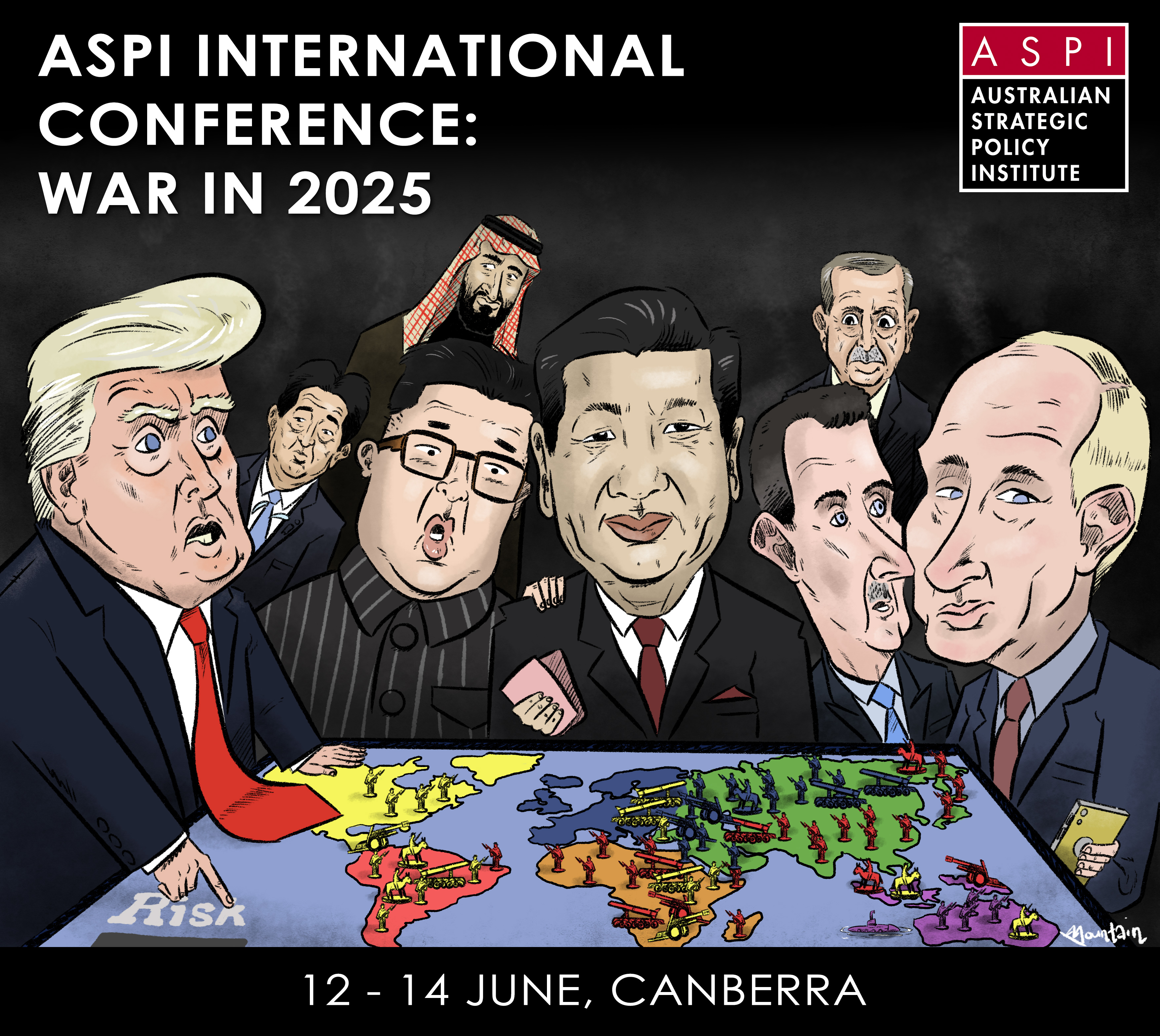ZAVIER RADECKER
 As I wrap-up the Australian Strategic Policy Institute’s (ASPI) War in 2025 conference that ran last week, what stands out is the Chief of the Defence Force General Angus Campbell’s warning that although “you may not be interested in political warfare, political warfare is most certainly interested in you”. He argued that Western democracies are vulnerable and at risk of being outmanoeuvred by totalitarian powers. These powers are unrestrained by rules and willing to use information campaigns, cyber operations, theft of intellectual property, coercion, and propaganda to weaken adversaries.
As I wrap-up the Australian Strategic Policy Institute’s (ASPI) War in 2025 conference that ran last week, what stands out is the Chief of the Defence Force General Angus Campbell’s warning that although “you may not be interested in political warfare, political warfare is most certainly interested in you”. He argued that Western democracies are vulnerable and at risk of being outmanoeuvred by totalitarian powers. These powers are unrestrained by rules and willing to use information campaigns, cyber operations, theft of intellectual property, coercion, and propaganda to weaken adversaries.
The information environment is not new; however, it is now recognised by the Australian Defence Force and others as a warfighting domain. In his keynote address, the Vice Chief of the Defence Force (VCDF) Vice Admiral David Johnston said that while the word ‘cyber’ is pervasive, the concept of information warfare appears abstract until you consider that fake news and privacy concerns are realities in contemporary society. VCDF reinforced General Campbell’s sentiments by warning that although Australia and its allies may enforce rules and regulations for cyber competition and conflict, our adversaries may not.
A key focus of ASPI’s international conference was that this new, modernised political warfare has emerged and will affect politics and policy for the foreseeable future. Grey zone operations have become more prominent in recent years, most notably in Russia’s disinformation campaign in the Ukraine and deployment of ‘little green men’. A rise in political interference has also triggered discussion, as it is a powerful tool proliferating at the national level and has become a dangerous new norm. What strategist and author Peter W. Singer refers to as ‘Like War’ is notable; the use of social media as a tool to engineer opinions and views through likes, shares and lies.
The takeaway from all of this is that war is changing. As we continue into the 21st century accelerated technological change demands similar change in the way we fight wars. As an army that has experience in both conventional and unconventional operations, we’re facing the challenge of political warfare. Although proliferated at the national level, political warfare is conducted militarily through grey zone operations which “subvert, erode and undermine, breaking international rules and norms, but ones that, in the eyes of the targeted state, fall short of requiring a war response” according to General Campbell.
Jamie Wylly, the Defence and Intelligence Solutions manager at Microsoft, warned that information warfare isn’t just used as preparation for kinetic action, but as its own independent form of warfare. War can look like the destabilisation of government via grey zone operations that target a population’s trust in its political organisations, just like Singers ‘Like War’. Then, what would traditionally be an invading force, becomes a rescuing force intervening between a population and its distrusted government.
The Western way of war eschews political warfare as it is viewed as an inappropriate tool in lieu of technical dominance we have held over our adversaries in recent conflicts. However, totalitarian states do not see war in the same way. Advancing technology has become their ally, beyond just allowing them to increase control over their populations. Their broader conception of war means that they engage with the spectrum of peace through to war without the restraints, scrutiny and critique that Western governments face.
Further to this, political warfare has revitalised the levée en masse achievable in totalitarian states. In his address at ASPI’s conference Dr Willy Lam reported that China has an ‘army first’ attitude where “the entire population can become soldiers”. This has already been seen where Chinese fishermen act as a marine militia.
As the Australian Army increasingly focuses on capability development and becoming ‘future ready’, we must not forget the realities of a war in 2025. In her keynote address, Senator the Hon Linda Reynolds, Minister for Defence, quoted former U.S. Defense Secretary Donald Rumsfeld: “You go to war with the army you have, not the army you might want or wish to have at a later time”.
Given the obscure realm in which political warfare exists, it is difficult to pinpoint the role our army has in it. Political warfare will involve our entire society; the battle will no longer be restricted to the battlefield and will continue online. We must ensure that we do not lose the fight before it begins; by registering the advantages of totalitarian adversaries we must strengthen our own. We must become capable, potent and agile by engaging intellectually with the obstacles political warfare presents. We must ask ourselves the hard questions and wrestle with our own expectations. We must remember that our adversaries have as much say as we do in competition and conflict; we must learn now so that we are not strategically surprised by a war as close as 2025.
No comments:
Post a Comment